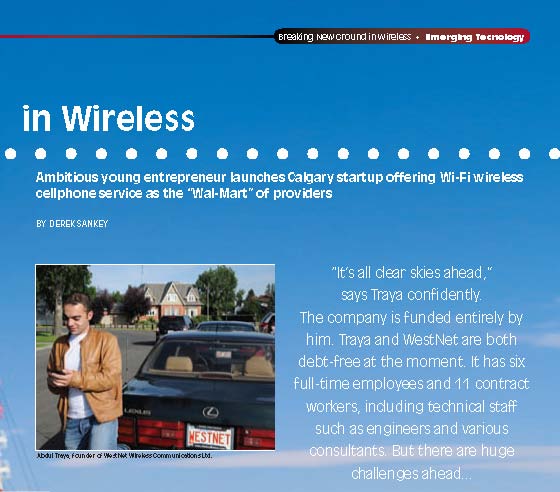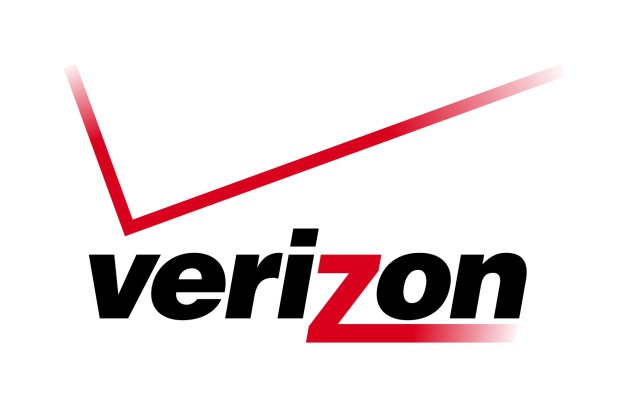
![]() wenty-eight-year-old Calgarian Abdul Traya was in junior high school in 1996 when he developed a passion to develop a "different kind" of Internet service provider "because things were so expensive," he recalls. He was a tech-savvy teenager who happened to also hit a gold mine.
wenty-eight-year-old Calgarian Abdul Traya was in junior high school in 1996 when he developed a passion to develop a "different kind" of Internet service provider "because things were so expensive," he recalls. He was a tech-savvy teenager who happened to also hit a gold mine.
He was one of those overnight success stories of the dotcom era. He registered the domain name AppleiMac.com in July 1998 two months before the launch of the Apple iMac computer. A high-profile legal battle ensued, and Traya settled out of court with Apple for an undisclosed amount in 1999. It attracted international media attention at the time. The modest web-hosting business that he was running out of his parents' basement suddenly became the basis for something much bigger.
That same year, the 18-year-old finished high school and founded WestNet Wireless Communications Ltd. Since then, he has been watching cellphone technology evolve and has been strategically building his business plan to offer low-cost wireless (Wi-Fi) cellular phone service using existing CDMA networks.
CDMA (code division multiple access) is just a technical term for the type of technology large service providers such as Telus or Bell have used in recent years. That is, until they began layering on the latest HSPA (high speed packet access) technology to support the next generation of iPhones and smartphones, widely touted as the future of the business, but not necessarily better than CDMA.
The CDMA technology is "really solid technology," according to Jim Johannsson, a spokesman for Telus Corp. Companies have been using it as a standard in North America for its relative reliability and it remains integral to their networks. Traya's vision was to essentially use the Wi-Fi Internet access provided by these networks to offer cellphone coverage, similar to voice-over-Internet-protocol (VoIP) service.
"I'm driven by passion, not profits," explains Traya from his office in downtown Calgary. He currently has
36 · AUGUST 2010 BUSINESS IN CALGARY

17,500 customers and is adding about 500 more a week, he says. Although his service is limited in scope so far
- it covers about 20 square kilometres centred around downtown Calgary outwards using Wi-Fi service, which operates on line-of-sight - he's attracting attention from corporate clients.
Some corporations place "links" on the top of their buildings pointed at WestNet's towers, which provides "near-fibre optic quality," speed and reliability. It's been described as the "Wal-Mart" of wireless because plans start at $10 a month, but service is so far limited to Calgary consumers. He plans a launch in Toronto "soon" as he continues to build his network. It will eventually include a North American 3G service running on the CDMA network if he gets approval from Industry Canada, which regulates the sector.
"It's all clear skies ahead," says Traya confidently. The company is funded entirely by him. Traya and WestNet are both debt-free at the moment. It has six full-time employees and 11 contract workers, including technical staff such as
challenges ahead...
engineers and various consultants. But there are huge challenges ahead.
He's already had more than a few tangles. "One of the big carriers in Calgary tried to put an injunction against me offering low-cost wireless service," says Traya. "We had so many [legal and regulatory] matters in the last few years. I had one of the vice-presidents of technology (from an existing service provider) come down to my office and tell me that my technology is failing. I don't know where to begin."
Traya doesn't give up easily. The big players don't see him as a threat in general, since he's emerging as more of a niche player - for now. In fact, he probably serves a niche large providers don't intend to target. "He might be on to something really interesting and he might find a customer niche that he can serve really well and be very successful," says Telus's Johannsson.
He also says there can be quality-of-voice issues with Wi-Fi cell service. "As soon as you get onto the Internet
BUSINESS IN CALGARY AUGUST 2010 · 37

it goes into IP protocol and that by its nature is somewhat bursty, meaning if you have too many bits (of voice data) on the network, you can notice degradation in voice," says Johannsson. "The applications that run on wireless networks have to be designed to work with the bursty nature of the networks."
Still, CDMA does in theory and practice support wireless voice service and Traya is adamant about exploiting this opportunity now, while he awaits regulatory approval for his 3G network from Industry Canada.
While the Wi-Fi service is currently limited to the Calgary area, he has already tested the Toronto market and is planning his foray there as soon as he can. Traya has proved, even as a teenager, that he has a knack for going up against large, established competitors and winning, just as he did with Apple during that ordeal.
"We had so many matters in the last few years," says Traya. The future of Wi-Fi and low-cost cellular service providers is uncertain at this point, but Johannsson notes there are already about two dozen cellphone service providers in Canada today. Many joined the fray after the most recent auction by Industry Canada for frequency space.
WestNet was disqualified from the auction because it wanted a lower-frequency space of 800 megahertz, while the auction was for 2.8 gigahertz. Companies that joined the market recently include "many small providers" who are targeting certain niches and Johannsson says that competition is healthy.
"When you're the first kid into a brand-new market that's untested, nobody really knows whether it's going to work," he says. "You put a lot of money at risk - your time and resources."
Traya certainly has put a lot at stake. Although WestNet is entirely funded by him, both he and the company have no debt, he insists. Meanwhile, he recently put a tower near the Calgary Stampede Park to improve reliability of his network.
Greg Bowman, an industry analyst, says the demand is there and Traya's venture could very well turn into something bigger "if Traya plays his cards right."
Some of the current challenges come down to the simple things in trying to operate a startup when competing with big players. "A challenge is for us to be taken more seriously by the local governments," he says. "We're classified as a telecommunications carrier, yet when one of our utility vans is working on something they get parking tickets, whereas Telus or Shaw vans don't get parking tickets. It doesn't make any sense."
Then again, parking tickets are nothing compared to the bigger business challenges ahead as he tries to break new ground in the world of wireless cell service. "We're just going to continue doing what we're doing and not let anybody intimidate us," says Traya. BiC
40 · AUGUST 2010 BUSINESS IN CALGARY


